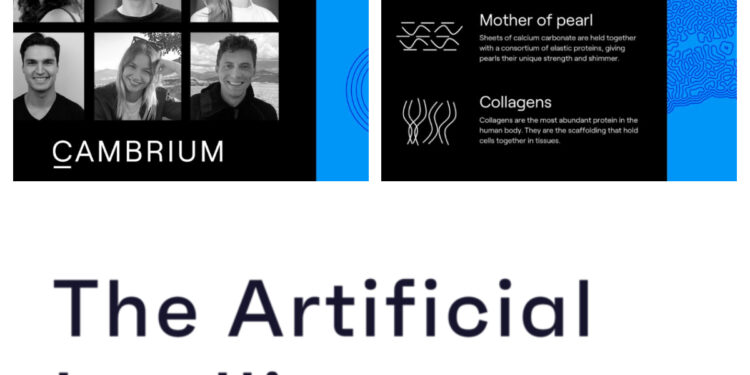Berlin – German, experts at the Falling Wall Science Week; discuss the importance of Artificial Intelligence (AI) as an intensifier of the BioTech industry – building innovative solutions to global health issues.
By Uzman Unis Bah
The Marketing Manager, Merantix AG, Raphael Stucheli, said, “AI is a very new technology, and there is much research to be done.” He said, building new technology is very important for advancing development. Adding, “Intelligence means you need to train a machine to do something, and you need to have datasets, which the machine can learn from.”
The Founder of Cambrium, Mitchell Duffy, affirmed that they built their first companies, doing AI breast cancer screenings, car searches, and providing a data platform. Duffy said, “Biology is the most advanced technology on Earth.”
Mentioning that it is vital to look back toward biology, which has been their source of inspiration.
“We are looking to create materials that matter, materials that are going to have an impact on the 23% of GHG emissions generated through material production,” he said.
Duffy insisted that their inspiration come from nature, which has already created an astonishing diversity of materials, material properties and data, in a very sustainable way.
Duffy said the solution could be in Proteins. Indicating that “vertical integration allows us to go and design from new material properties, end to end learning approach and hopefully create these sustainable protein materials with superior performance.”
Terra Lumina, a company that uses AI to develop novel therapeutics, employs AI to harness the power of data and AI to unlock the therapeutic potential of nature, small molecules.
The Founder of Terra Lumina, Sona Chanda, states, “70% of modern-day diseases have no improved treatment, the prevalence and rate of chronic disease continue to rise year over year, the cost of bringing a new drug to market since around 2.6 billion, it takes about 15 years. More than 95% of these drugs will fail along the way.”
“In Africa, plants are harnessed to prepare local herbs, a practice that has lived for ages. The emergence of AI brings hope; it will help transmute herbal products into conventional medication in the future,” states Chanda.
She stated that AI has emerged as a novel strategy to accelerate and drive innovation in early-stage drug discovery.
“AI will accelerate many parts of the process, like novel target identification, novel compound selection, and these companies have shown many promising results with many compounds reaching first in human clinical trials,” Chanda said.
Chanda states, 60% of the drugs in the market come from nature; actually, 77% of those relate to their traditional medicine use case. Stating, “But until now, nobody has effectively gone and sort of pulled that information together in a scalable way.”

AI is reopening the door to natural compounds as a source of inspiration for small molecule therapeutics. “traditional medicines are a great source of possible kind of hypothesis substantiation, and research question prioritization, but ultimately, where the AI comes in is being able to predict the link between compounds and their bioactivity on targets.” Chanda said.
Prof. Dr. Roland Eils, Founding Director of the BIH Digital Health Center, said, “We were looking at the landscape of viral Association across all human cancers, which he included here, and we could identify viral signatures which are unique for these cancer types which are related to cancer to virus infection.”
Elis, citing that the Human Cell Atlas is not less than what has been initiated by the first publication of a periodic table of chemical elements by Dimitri Mendeleev, a little above 150 years ago. Stating there is room for more research.
“The table of chemical elements is formed based on the characterization of already known Elements,” he said.
Elis said, with the arrival offer of COVID-19 patients in March 2020 in Berlin, they set up a process of a prospective clinical study that aims to characterize the pathophysiology of every single COVID-19 patient.
In identifying the challenges, Elis mentions, “Ethical standards and ethical limitations of AI are a big topic here on the campus.”
AI continues to sprout innovations, and as science thrives in advancing research and finding solutions to the global health threats, AI inspires the scientific quest to develop a healthier world.
“Berlin gives a fantastic filter for the kind of entrepreneur minded who are moving here; we have been hiring particularly outside of Germany because of the applicants that are excited to join our startup,” said Raphael.








